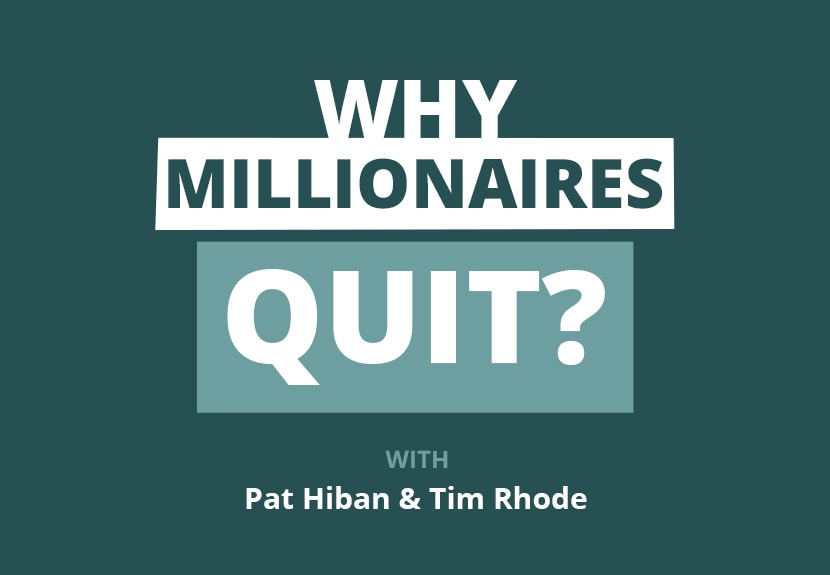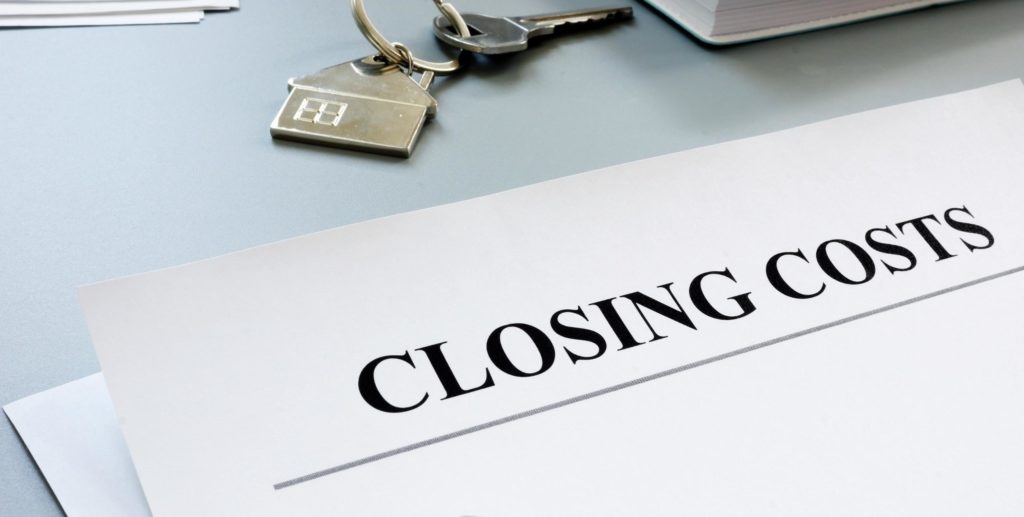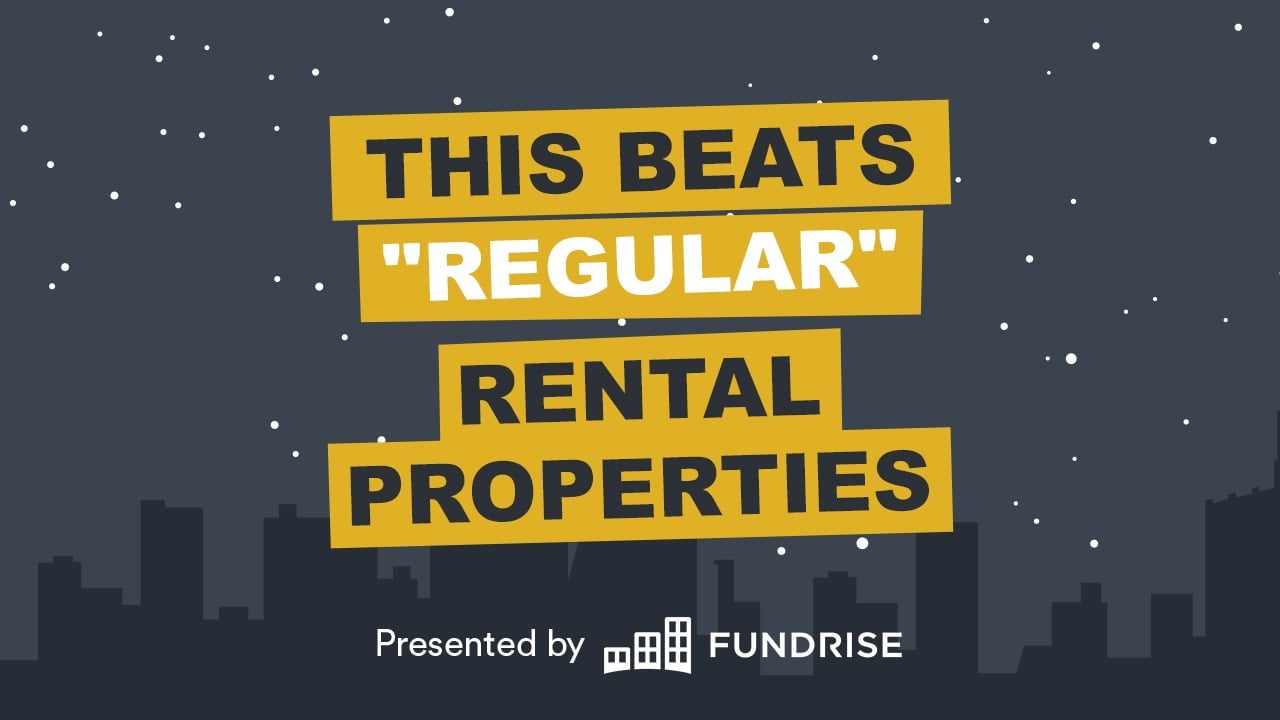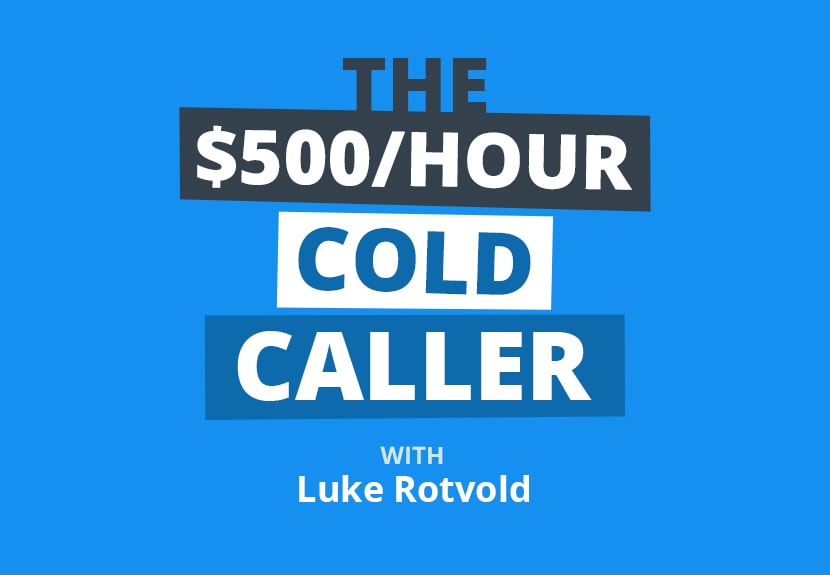What Makes Rookies Into Millionaires? Quitting What You Hate!
Real estate investors are a hard-working bunch. They put in long hours every day to create passive income and find financial freedom. Many investors resort to doing what they hate, day in and day out, simply to escape the clutches of a nine-to-five job. If you’re a rookie real estate investor, you’re probably the property manager, head of acquisitions, tenant contact, and accountant all rolled into one. But this “all or nothing” way of working could slow you down faster than you know.
If you want to take your wealth to the next level, try quitting—it’s what Pat Hiban and Tim Rhode have been doing for decades. As two successful real estate agents, they enjoyed the negotiation games that eventually led to large commission checks. But as the years went by, this non-stop grind took its toll—so much that they both gave up very profitable professions to do what they love. Surprisingly, the “do what you love” lifestyle made them even more money than before!
This is all well and good for a couple of veteran investors, but what about our real estate rookies? What about you, listening to this with one, two, or ten deals? How do you take a step back and become a quitter like Pat and Tim? Can you really make more money by doing less, and even if you could, how do you take the first step? In their new book, The Quitter’s Manifesto, Pat and Tim lay out the exact team and strategy you need to go from burnout to big checks with far less effort.
Ashley:
This is Real Estate Rookie episode 216.
Pat:
And I think the number one rule to being a good mentee is actually taking the advice of the mentor. A lot of people come to me and I say, “Read this book and do this, and do that,” and I never hear from them again. But when I hear back from somebody that’s like, “Pat, I read all three of the books. Here’s a picture of all the notes I took. I did exactly what you said. I went out there and did this and did that,” I’ll be like, “Great. Stay in touch.”
Ashley:
My name is Ashley Kehr, and I’m here with my co-host, Tony Robinson.
Tony:
And welcome to the Real Estate Rookie Podcast where every week, twice a week, we’ll bring you the inspiration, information, education, and motivation you need to kickstart your investing journey. And I’d usually like to start the shows by giving a quick shout out to the folks that have left us a review. This week’s review comes from Yuri to Wealth, and she says, “Best podcast for people getting started.” Yuri says, “This podcast has helped me stay motivated and want to level up and become financially free. It amazes me hearing other people’s stories, and I always learned a thing or two from every episode. I am so glad this podcast exists.” So, Yuri, we appreciate that. And if you haven’t yet, please leave an honest rating and review on whatever platform you’re listening to. The more reviews we get, the more folks we can reach. More folks to reach, more folks we help. So Ashley, we’ve got a really, really good episode lineup for today, right? Two just absolute juggernaut to the game. One of them is a self described OG, legit real estate investor. So, I’m excited for people to listen today.
Ashley:
Yeah, we have Pat and Tim on today who just wrote the book for BiggerPockets, The Quitter’s Manifesto, and they are going to break down why this is important for a rookie investor to actually take a read. They go through as to how they quit their careers to go into new careers or new passions. And a big thing they brought up several times is that the goal was to not do any obligations but to do your passions, to do what you wanted to do. And I think that’s really awesome and sometimes all of us need that reminder in life.
Tony:
Yeah. That part really struck a chord with me. They talked about moving from 100% obligation to 100% interest, and I feel, right now, I’m 90% obligation, even 95% obligation, 5% interest. So, that part really resonated with me, and more so, they give you some instruction on how to do that. So first, these guys, they run the company called GoBundance. So basically, their entire working life, all they do is talk, and teach, and network with super successful entrepreneurs in all forms of business.
Ashley:
Let’s just name drop and say Brandon Turner, David Greene, [inaudible 00:02:55] and look at them. That’s amazing.
Tony:
Exactly. And there’s a lot of other really successful folks in that group. And both Pat and Tim have a knowledge of things to just open up your mind as an entrepreneur. They talked about journaling and how to make that the most useful. We spent a good chunk of this episode talking about mentorship, and not just the benefits of it, but practical, tactical ways you can go out and find a mentor that I think will really resonate with a lot of the folks that are earlier on in their journey.
Ashley:
And how to be a good mentee too, I think it’s really important that they talk about.
Tony:
So many good things. And they also talk about the progression you go through in your business, when it comes to you’re starting out at the ground level and what it looks like once you’ve built a successful business and how to get there. So, this conversation usually could have gone on for two hours. These guys are phenomenal, a wealth of knowledge, and I’m excited for you guys to hear it.
Ashley:
Tim and Pat, welcome to the show. Thank you guys so much for joining us. Can we get started with Tim, maybe you going first, and just telling us a little bit about yourself and who you are?
Tim:
Sure. Well, I was the least likely to succeed in your class, going back to high school. Barely graduated high school, never went to college, and at 25, I was a part-time grocery clerk, not getting enough hours and trying to do side hustles to make money for my two small kids. Then I found my niche selling real estate. I sold a lot of real estate, I was damn good at it, really concentrated on coming through for whoever I went to work for. And then I also invested a lot in real estate while I was in the trenches. And I sold 17 properties with 52 tenants in 2008 right into the Cali craze, and tapped out and retired. And candidly, I’ve never worked since. So, that’s-
Ashley:
That’s quite the story.
Tim:
Yeah. It was fun. Yeah. So, we wrote this book, Quitter’s Manifesto, about how to quit whatever you’re doing. And Pat and I are the original quitters and we become very, very good at quitting what’s behind us to tap dance to the next incarnation. So, that’s what this book’s all about and we’re excited to share it with your listeners.
Ashley:
Pat, what about you? Who are you? What’s your story?
Pat:
Who is Pat Hiban? I don’t know. I’m in a lot of therapy to try to figure that one out.
Ashley:
Yeah. Let’s dig deep here.
Pat:
So, a little bit different story than Tim. I went to college but I got a 2.3 GPA in sociology. And I found I couldn’t get hired really, the jobs weren’t big for sociologists. So, I got into a job with the least barrier to entry, and that was real estate sales. And started at 21, worked all the way until 46, 47 years old, selling real estate. Sold a lot of houses, made a lot of commissions one house at a time, and just worked my way through the ranks of about five different major companies. Had my own company, had a mortgage company, had a title company, did everything in that realm. And then I just got out, I just exploded, I don’t want to do it anymore. And that was that. Then at that point, I did a four or five ventures that just failed, that I just seemed like a good idea at the time scratching some itch, but didn’t pay and didn’t work.
So then, eventually, Tim and I, along with a couple other guys, started a men’s mastermind called GoBundance. And now, between our women’s group, our men’s group, and our rookie group, we have over a thousand members, 1,020 members, paying members. Just a miracle really. And then I also started investing. I started buying, first, single family homes, then multi-family homes. I think with my company, DAPT Acquisitions, we have about 2000 doors. But some other various commercial real estate, sold a bunch, and wrote a couple of books, and that’s where I am today.
Ashley:
Awesome you guys. So, part of the big reason that you guys are here is to talk about your book. So, let’s start with that, let’s go over that. It seems like you guys have accomplished a lot, you have a great stories, but let’s focus on the book and why did you even decide to write this book?
Tim:
I think the reason we wrote it is we’ve both done what most want to do but don’t know how to, and that is to go from obligation, 100% obligation, to as much as possible, 100% interest, doing things you love to do. And in the book, we have the interest over obligation quotient and we help people get to, let’s say, 80% doing what they love to do, interest, versus what most have to do, obligation. And that’s one of the premises of the book, that’s one thing Pat and I were able to do, is start in total obligation, that was selling real estate and doing the things we had to do daily, to juggling the other real estate to get us to a place where we could do what we want to do pretty much all the time.
And I found when I tapped out at 40 years old, I started doing a lot of time just getting the goods in the mountains, skiing a hundred days a year, doing things I really wanted to do, and that helped me, as well as Pat, start GoBundance, start DAPT, start figuring out what’s on the other side. And because so many are just focused, they’re on the hamster wheel and can’t get out, and that’s what this book does, is gives you the tools to go to what’s next for you.
Tony:
Yeah. So Tim, one follow up to that, I think for a lot of the rookies that are listening, obviously, I think a lot of their goals are to, at some point, focus on the things that interest them and not missed out their obligations. For example, we just interviewed another rookie investor and she said one of the obstacles to her getting started was that the idea of getting to that point seemed so far away that it seemed almost unreachable. So, what is your advice to people that are at the beginning of their journey that hear you guys talking about this wonderful life you’ve built for yourselves, but they don’t quite think that it’s possible to get there?
Tim:
Yeah, we would both say that. When we started, we didn’t think of it as possible. I don’t think either of us had this, begin with the end in mind, we’re going to be rich, we’re going to be spending a lot of time just doing the things we want to do, what we did, and Pat could probably back me up on this, it’s a matter of juggling balls. And we all have the career, the family, all the obligations we have, and the challenge is, how do you throw that new ball in, keep those other balls going and not lose one and not drop the whole thing? So, I think that’s the thing, is just taking… It’s like everybody wants to take the elevator to the top, you got to walk the stairs. And it’s just taking that next stair, whatever that is for you, and you know what it is for you. I shouldn’t say, you know what it is for you, it’s the answer, is getting quiet and seeking advice and getting out in nature to just get quiet enough to get those answers. And that’s the tough part.
Tony:
Yeah, I want to follow up to that. You talk about getting quiet, and that’s something I struggle with tremendously. Because we have so many moving pieces in our business, we’re just like, there’s always things to do, and my mind’s always racing. So, that’s just the way that I live my life unfortunately. So, what are some tactical steps that someone like me can take to find some of that quietness, and how do I get the best out of that quiet time, if that makes sense?
Pat:
Sure. One thing that Tim and I both do is journal. I probably have a hundred journals. I’ve journaled ever since I got out of college basically. No one I knew journaled growing up until I started meeting other successful people, like Tim and David, and find out that they journaled too. And I think it’s a sign of successful people. What happens when I journal is I manifest things. Every idea that I’ve ever had, every company I’ve ever had, every problem that I’ve ever had, I’ve journaled it out and tried to solve the problem in the journal. And sometimes, it doesn’t get solved in there, or it gets solved by a way I didn’t think of or by accumulative of seven or 10 days of journaling about the same thing. But it all passes through there and I think it’s very effective. It’s therapeutic but it’s also very effective in solving problems and in getting off the dime.
And also, I’m like you, Tony. I’m manic at times and I just come up with ideas, and a lot of them they don’t work, but it’s okay, because once I push them on the page, I might come back to it later and be like, “Yeah, that’s a dumb idea.” Or I talk to my wife about it and she’ll be like, “I don’t know. That’s not you.”
Ashley:
Tony, one thing that Brandon Turner has told me that he does is, he’ll get a massage every week and that’s his thinking time. Because you can’t do anything else but lay there and that’s when he has his quiet time to think. So, I would love to do that. So, Tony?
Tony:
That’s not a bad idea. That’s not a bad idea.
Ashley:
Does that mean since it’s for your business, it’s a write off too?
Tony:
It’s a write off. It’s got to be.
Pat:
Absolutely.
Tim:
And I remember when I was in the trenches, just walking outside and taking a walk around the block, if I couldn’t get out, and just getting my heart rate elevated and getting these ideas going through in my head and having a meeting with my board of directors in my head. And then when I had the time, I love the term, getting the goods in the woods, because that’s where all my best ideas ever came from. And whenever I could get out in nature with my heart rate elevated, it was magical and it was like tapping into the universe, if you will, and I come back with just these amazing ideas. I couldn’t wait to have my wife shoot them down, like camps.
Ashley:
Well, you briefly mentioned about the board of directors, can you expand on that a little bit more?
Tim:
Well, there is a piece in this book about having a quit team to help you actually quit, and I think, Pat, you should touch on that. But Napoleon Hill, in this great book, Think and Grow Rich, talked about a board of directors in your head. And if you look at all these different areas of our lives, maybe it’s business, maybe it’s exercise, maybe it’s relationships, having people that are mentors and coaches that help you get clarity of the things that are most important to you. And Pat and I have talked numerous times about this, first of all, both of us have two coaches right now in our lives. We’ve had a series of coaches throughout our lives.
I told you I never went to college, but I wish I would’ve kept score because I know I’ve spent somewhere between 500,000 and a million dollars on education. If you name any of the greats I saw back in the day, Jim Rohn, and Wayne Dyer, and Zig Ziglar, and so many, I could just go on and on with all the different programs I went through, and these people are like my coaches in my head, who I’ll hear their voices. And I think all that helps lead you to beyond what you think is possible.
Pat:
Yeah. And I’ll talk on the quitting. For anybody that wants to quit, we recommend creating a quitting team. And on the team, there’s four categories of people. You’ve got stakeholders, number one. Now a stakeholder would be like your spouse, loved ones, basically, someone who’s going to support you, someone who’s going to say I believe in you, someone who is going to listen to you when you tell them how hard it is, and the troubles that you’re having, and not discourage you. Those are your stakeholders, the people that are in this with you, from a side point of view, meaning, family. And the second one is partners. Now, these are actual people. They could be businesses that you use, suppliers, investors in your company, people like that that are not necessarily owners of the company, but they’re attached somehow. If you do well, they do well.
And they might be able to link you with other people or other businesses to do you a solid so that you do well, and thereby, they would do well, if that makes sense. The third box, and we have boxes in the book for you to fill out names and put at least a couple of names in each box as mentors. Now, mentors are not like this old dude with a beard and long white hair sitting underneath a tree somewhere-
Ashley:
In a blue shirt, headphones on right now.
Pat:
Exactly. This is somebody who actually is in your exact business, we’re a similar business. So, in real estate, this would be like someone who’s been in the… It’s funny, this is relative, I had dinner last night with a guy who owns a big real estate broker and he texted one of his agents and he said, “I’m having dinner with Pat Hiban.” And the guy goes, “Oh, I know of Pat Hiban. He’s the real estate OG, legit.”
Ashley:
That’s quite a compliment right there, right?
Tim:
Now he needs a beard.
Pat:
I was like, “Wow, I’ve been calling a lot of things but never real estate OG, legit.” I was like, “Okay.” So, that’s my rap name, real estate OG, legit. Anyways, so I would be a mentor to that kid. So, somebody who actually has done it and can save you time because they’ve already done it, they’ve already learned the lessons, they’ve already gotten their teeth kicked in so they can keep you from getting your teeth kicked in and save you time so you don’t have to make the mistakes that they made, that would be mentors. And then the last one is coaches. And coaches are different than mentors because the thing that coaches do is they offer the accountability piece. You’re paying them to be a drill sergeant or a personal trainer. You’re paying them to yell at you if you’re not doing things that are going to make you more money.
If you want to get into real estate investing, it would be doing drive-bys of vacant houses where you see high grass, and leaving them notes, or whatever the process is that’s going to make you money. There’s an accountability piece to a coach that a mentor’s not going to… there’s nothing in it for them, they’re not going to alienate you by being a jerk on purpose. But a coach will. A coach, you’re paying money to be a jerk to you on purpose. So, those are the four boxes and we encourage everybody, before they quit or go out in an endeavor of self-employment entrepreneurship, before they do that, fill out two names in each of those boxes.
Tony:
Pat, what a wonderful description of who you need to consult with in your life. And the one I want to drill down on, I think, is the mentors piece. Because for a lot of rookies that are listening, their dream is to find that mentor that’s going to hold their hand and share a lot of the wisdom and lessons learned that that mentor has and pass it along to this new real estate investor. So, if I’m someone that’s new, maybe I don’t necessarily have a big network myself of people that invest in real estate, which is true for a lot of new people, and Pat, I’ll ask it to you first, and Tim if you can follow up, but how can I, as a new investor, find that mentor that’s willing to give me the time and energy of sharing all those lessons?
Pat:
Go to BiggerPockets Convention. Really, that’s how. Here’s an interesting fact, I met Tim at a money convention in Chicago. I’m from Maryland, he’s from California. I was tying my shoes to go for a run in the lobby and he came out in running clothes and was going for a run. And we ended up running together and meeting. We were both interested in money. He had more money than me, he had a lot of real estate, which I didn’t have at the time, so he essentially became my mentor in that. He was also, and is, my mentoring quitting. When I met him, he was 41 or something, and he had just quit. So, I was like, “Wow, this dude quit at 40 years old. I need to run with him.”
But the point is, that’s the answer to your question, you got to put yourself out there with other people that would be your mentor and just grab him in the hall and just start talking to him. And everybody, guys like me, real estate OG, legit people, we’re egomaniacs, we love talking. We get high from talking to people. So, if a young person comes up and asks us questions, we’re not going to be a jerk to them. That’s reality.
Ashley:
Tim, before you go real quick, I want to follow up with Pat real quick on that. So, when you guys went for that run, I want to understand how you treated Tim or how the conversation went. Were you just all of a sudden like, “Here’s my chance, I’m going to drill him with questions,” or was it like, “Let me build a connection, a relationship, with this person and then we go into a mentorship”?
Pat:
So, this might not be the answer you think or recommend. So, first of all, I had happened to be talking to another guy that was Tim’s friend at a social cocktail party, or something, the night before and he’s like, “You got to meet my buddy Tim Rhode.” And so, I knew of him from literally the night before, and I guess, somehow, I might have known that that was him, or something, I’m not sure. But my personality is, and this is not good, I actually have a communication coach that I’m working with that try to change a little bit of this, but my personality is, sometimes, I go too fast into asking questions and it alienates people. They think I’m a private investigator working for their ex-husband or ex-wife or something. No, seriously, I had a woman asked me if I was an FBI agent pretty recently. There’s a story behind it, but I was curious about something and I was asking her too many questions.
So anyway, to answer your question, Tim and I connected over passive income, we connected over real estate, we connected over wealth. The seminar we happen to be at is called Money Matters. So, pretty much everybody there was there to talk about money. So, that’s what I did. We connected after. We grew as friends later, but during that run, it was like, “How many rental properties do you have? How much money…” You know what I mean?
Ashley:
That’s so interesting, and I like to hear both sides of it as to how people build a relationship. And Tim, did you have other people trying to talk to you because of your status at this point during that conference? And why did it end up being Pat that you built this relationship? Or do you have 5,000 Pats around you all the time that you’re friends to all of them?
Tim:
Actually, because of that Money Matters seminar, the next day I went running with David Osborne and Pat, and we became the three amigos. When we started our own mastermind, and that’s turned into GoBundance. And just to take that to the next level, you guys all know Andrew Cushman, he’s a regular on BiggerPockets show. When Pat talks about DAPT, it’s David, Andrew, Pat, and Tim. And Andrew is our horse, and he goes out and finds all the apartments. So, this is really a key piece for all the people that are listening to this is, it’s like we built a team together. We started really small and it was the three of us, and then GoBundance became, from those three, as Pat said, is now a thousand people. DAPT started off as one apartment complex because I knew Andrew from when I used to coach real estate investors and we plugged him in as the one finding all the deals.
So, the point to the listeners is, it’s who, not how. And it’s finding that piece that completes you. And Pat, David and I, together, just took us to another level in our lives of not just finances, but health and fitness, and relationships, and stuff, and we all fed off each other. I would like to touch on the, who did I find for mentors early on, and one was a guy in my hometown, his name was Johnny Viera. And when I changed my identity from Tim List and Sells Real Estate and buys a few rentals, about 2000, I decided I want to go full on into investing and quit listing and selling real estate. So, I made two moves. One, I wrote a plan called Tim is Now an Investor Plan. And two, I reached out to the biggest investor in my area, Johnny Viera, who owned 250 rentals at the time.
And I bought the dude breakfast. And that’s a key point in this, don’t just suck his head, ask what you can do for them. So, I wanted something from him, so I wanted to make darn sure I at least bought him breakfast. And he was so generous. Just like Pat said, he is way beyond. He just threw his cards on the table, or everything he was doing, I’m taking copious notes. And it really helped my investor game. So, I think that’s something that can really help, those around you, and obviously, being into investor meetings and stuff like that. It’s doing the homework, that’s part of those stairs, I was talking about, is doing the things, going to that seminar we went to. What a game changer. That $3,000 has been a $5 million hit.
Tony:
It’s good returns.
Tim:
Yeah.
Tony:
Now, I was just going to say, Tim, on the mentor piece, I want to talk a little bit about the team building too before we move on to that, just back to the mentorship really quickly, I know something that I struggle with is, and I have access to pretty successful entrepreneurs and real estate investors in my network, but I hate the idea of just going to them and asking for things and not being able to provide value in return. And it’s like what value can I give to someone that already has 3000 units? They have their team, they have this, they have that. So, if I’m a rookie, how do I identify ways to add value to these potential mentors? That way, they, I don’t know, maybe give me the time of day.
Tim:
I would find somebody who knows them and knows what they like and finds something you can do to add value to them. Honestly, just buying a breakfast wasn’t enough. It was very nice that he did that, but I would’ve maybe found somebody on his team and find something they’re really into and get him a gift or something like that. But it’s worth it. And it’s okay also just to reach out and say, “Hey, I know you don’t know me, but boy, would you mind spending 15 minutes, 30 minutes on a phone?” Something like that.
Pat:
A great question is, what can I do to earn the opportunity to have lunch with you?
Ashley:
Do you know what the answer would be if someone asked you that though? Because I don’t know what I would say to that, I guess.
Tony:
Same. Same.
Ashley:
Yeah, if someone said that to me. And I think that’s what I struggle with, is I have a lot of people that reach out to me on Instagram and say, “I’d love to work with you. What can I do for you at free time? I can do this.” But I don’t know what to even task them, or assign to them, or what they could send to me, or whatever.
Pat:
The answer to your question is that you don’t have to necessarily really give them something. It’s rhetorical. You’re hoping that they say, “Don’t worry about it, I’m happy to meet with you.” Logically thinking, they could say, “Well give a donation to my charity,” which a lot of rich people have charities that they are fond of or have their favorite charity, if not their own charity. And that works if they ask for that or if you want to do it. The other big thing that I actually talk about in my first book, 6 Steps to 7 Figures, is how to be a mentee, how to be a good mentee. And I think the number one rule to being a good mentee is actually taking the advice of the mentor. A lot of people come to me and I say, “Read this book and do this and do that.” And I never hear from them again.
But when I hear back from somebody that’s like, “Pat, I read all three of the books. Here’s a picture of all the notes I took. I did exactly what you said. I went out there and did this and did that.” I’ll be like, “Great. Stay in touch.” Because it makes me feel good that someone’s actually respecting the advice that I’m giving, because 99% of the people don’t do what you tell them they should do.
Tim:
That’s darn good, Pat. Spot on.
Tony:
I want to talk a little bit about the team building piece. Tim, you had mentioned about DAPT and how it came together, that Andrew was the workhorse that put that all together. So, as I’m looking to set myself up to quit, we talked about the stakeholder, the partners, the mentors, the coaches, but what about the team I actually need once I do quit? What does that part look like?
Tim:
Well, and Pat can relate the to this too, let’s look at three different levels. A, you’re a player in the game. B, you’re a general manager. And three, you’re an owner. And now Pat and I are like owners, but boom, when we were players deepening our bench, one thing that I said all along is, I suck. And my theory is, so many people, they want to do everything, “No one can do it like me.” I never had that problem. All I wanted to do was prospect and list homes back in the day. And one person at a time, I’d get somebody to do everything I don’t want to do. At one point I had five people doing all the things I want to do… or, excuse me, didn’t want to do, to lead me to success. So, I think when as a player, it’s getting the training wheels for yourself, learning what’s your MO, and boy, that’s something.
If you suffer from having to do everything yourself and think nobody can do it better, I challenge you to get out of your way because you’re really limiting yourself. And I’ve always, always, to this day, every single team we have, it’s full of top-notch players, and we don’t do anything, and I rarely did all along, as a player, as the GM, as the owner. I got much off my plate as early as I possibly could to just concentrate on my unique 10%.
Tony:
Tim, I love that. I want to hear from both of you. So Pat, maybe if you can answer first, and Tim, we’ll go back to you. But I think that’s every new investor’s dream, is to be able to build this business where they outsource all the stuff they hate doing, they’re really working in their area of expertise, just the thing that they’re uniquely skilled at doing. But building a team also requires money. And for the person that’s only got one unit, the idea of outsourcing everything doesn’t seem feasible because there’s just not enough revenue coming in. So, as you’re building your business, Pat, how do you know when to start bringing people in? And does it make sense to maybe give yourself a pay cut to start paying someone else to do some of the work that you were doing before?
Pat:
So, the answer is it always does at some point. You should do it yourself for 50 hours, maybe 60 hours a week. If you’re going to make this a full time thing as investing, you should actually work 50, 60 hours a week in building it in the beginning. And just imagine what you could make happen if you actually were dollar productive, meaning, you were actually calling people, or texting people, or leaving them notes, or knocking on the door, or whatever, how many leads you could get as far as houses to buy or whatever it is you’re trying to buy, whatever piece of real estate asset you’re trying to buy, if you did that. And then, because you worked 50, 60 hours a week doing dollar productive activities, meaning, things that make you money, you’re going to have more than one unit, you’re going to have lots going on and you’ll be able to afford to go to Upwork and find someone on Upwork to do what you want to do five hours a week at first, and then 10 hours a week, and then 20 hours a week, and then hire somebody full-time eventually.
Tony:
Yeah, that’s a great example. Tim, do you have anything to add to that?
Tim:
Yeah. When I was selling real estate my first full year in the business, I did what Pat said, I did everything myself, absolute just in the trenches, working my butt off, doing whatever it took to get the job done. I made 70,000 my first year, and I hired Diane McClanahan at 48,000 per year with four weeks paid vacation. She’s the best escrow officer in the area and I grabbed her. And just had this anchor who, as soon as I got it into escrow, I knew it was done and I went into just prospecting and listing. And then my second hire was somebody… as soon as I got the listing, they’d take it from there until it went to escrow. So yeah, doing all the things that I wasn’t good at. And pretty soon it was like, I’d say, “This is my team, here’s my phone number, but you’ll never call me.” They’re amazing, they do everything. And they did.
Tony:
Yeah, I do think that’s a common misconception, not just entrepreneurs or not just real estate investors, but entrepreneurs in general have is that they hear this, the “who, not how” and build the team and do this and do that, but they miss the fact that that’s a gradual process, and that it’s not supposed to be on day one, or day 30, or day 90, or day 180, or day 365, it’s years down that grind when you’ve really built that financial nest egg to be able to afford that team member, where you can start outsourcing things.
Tim:
You got to mop the floors.
Tony:
There You go.
Ashley:
Tim and Pat, my next question is along the same lines, as having the money to pay your team, but before even that, what kind of reserves or what should your financial position look like before you actually quit?
Tim:
Mine was not by the book, let’s just say. I think most people would want a little more in reserves than what I did. When I tapped out at 40, it wasn’t like I had a big massive reserve or big money was coming in, it was barely there. And I believed in myself, and just knew all the things that got me to this place was no longer working with me with my old incarnation, which was selling real estate. And then I want to, just for investing, I knew if I just worked at it and did the same thing I used to do just for I’m going to be the customer instead of the client, that I knew I could make it happen. So, my answer is yes, it’s wise to get money behind you and to have a nice cushy place to jump off. But sometimes, it’s time to just make the move and it’s best for you not to.
Ashley:
Well, thank you guys so much for joining us on the podcast. Can you let us know where everyone can find your book and where they can reach out to you guys?
Pat:
Yeah, that’s easy, biggerpockets.com/quittersmanifesto. Name of the book again is, The Quitter’s Manifesto, Quit a Job You Hate For the Work You Love. Quitter’s Manifesto. So yeah, we’re excited. BiggerPockets has been a great publisher for us and we think we have a really good book that’s going to help millions of people. Everyone that’s read it so far has given us rave reviews on it. So, I hope that anybody listening, go ahead and pick it up. It’s an easy read. It’s what we call an airplane read, which means you could buy it in an airport, read it on your flight, and be done when you land.
Tim:
Thanks for the opportunity, Ashley and Tony, and we’ll see you all at BiggerPockets Conference this fall in San Diego.
Ashley:
Yeah, that’s going to be October 2nd to the fourth, so we hope to see everyone there. If you haven’t checked it out yet, go to biggerpockets.com/events. And if you want to check out their new book, you can find it in the BiggerPockets Bookstore. So, Pat and Tim, thank you guys so much for coming on and we also look forward to meeting you guys there at the conference in sunny San Diego.
Tim:
Look forward to it.
Pat:
Look forward to meeting you guys.
Ashley:
I’m Ashley @wealthfromrentals, and he’s Tony @tonyjrobinson, and this has been another Rookie Reply.
Interested in learning more about today’s sponsors or becoming a BiggerPockets partner yourself? Check out our sponsor page!
Note By BiggerPockets: These are opinions written by the author and do not necessarily represent the opinions of BiggerPockets.
What Makes Rookies Into Millionaires? Quitting What You Hate! Read More »












